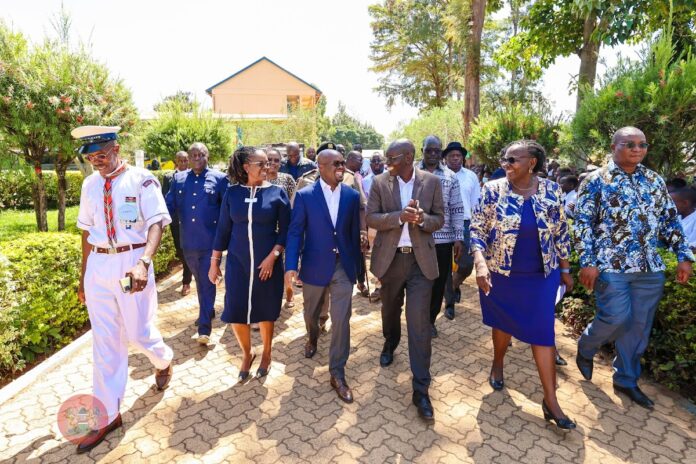In a significant move to address the shortage of teachers and enhance the implementation of the Competency-Based Curriculum (CBC), the national government has announced plans to recruit over 20,000 teachers and construct an additional 16,000 classrooms. This initiative, spearheaded by Basic Education PS Belio Kipsang and Interior PS Raymond Omollo, aims to bolster the education sector and create a conducive learning environment for students across basic education institutions.
Key Points:
- Teacher Recruitment: The government acknowledges the critical need for more teachers to effectively implement the CBC. With plans to commence recruitment in July, the goal is to alleviate the persistent teacher shortage in schools, particularly in Junior secondary schools where the CBC rollout faces significant challenges due to understaffing.
- Enhancing Learning Environment: PS Kipsang emphasizes that the influx of new teachers will not only address the shortage but also improve the learning environment for students. By relieving School Boards of Management (BOM) from the burden of recruiting teachers, the government aims to streamline the staffing process and ensure equitable access to quality education.
- Classroom Construction: In tandem with teacher recruitment, the government is committed to constructing 16,000 classrooms to accommodate Grade nine learners. This initiative targets areas with pressing classroom shortages, including Rangwe constituency and Homa Bay County. By investing in infrastructure development, the government seeks to create conducive learning spaces and enhance access to education for all students.
Overcoming Challenges:
- CBC Implementation: Shortages of teachers have posed significant challenges to the effective implementation of the CBC, with some schools experiencing delays in subject delivery. However, the government’s proactive measures, including teacher recruitment and infrastructure expansion, aim to mitigate these challenges and ensure a smooth transition to the new curriculum.
- Insecurity Concerns: PS Omollo highlights insecurity as a major impediment to education in many schools. To address this issue, the government plans to establish police posts in strategic areas to enhance security measures and create a safer learning environment for students and teachers alike.
Future Prospects:
- Youth Empowerment: Beyond addressing educational challenges, the government underscores its commitment to tackling unemployment among the youth. Through initiatives such as online job opportunities and skills development programs, it aims to empower young people and equip them with the tools they need to succeed in the workforce.
- Community Engagement: PS Omollo emphasizes the importance of community involvement in addressing insecurity and supporting government initiatives. By fostering a culture of responsibility and accountability, communities can complement government efforts and contribute to the overall well-being of society.
Conclusion:
The government’s ambitious plans to recruit teachers and construct classrooms underscore its commitment to enhancing education and investing in the future of Kenya’s youth. By addressing critical challenges and implementing proactive measures, it aims to create a conducive learning environment, promote academic excellence, and empower young people to realize their full potential. As these initiatives unfold, stakeholders must work collaboratively to ensure their success and foster positive outcomes for generations to come.
